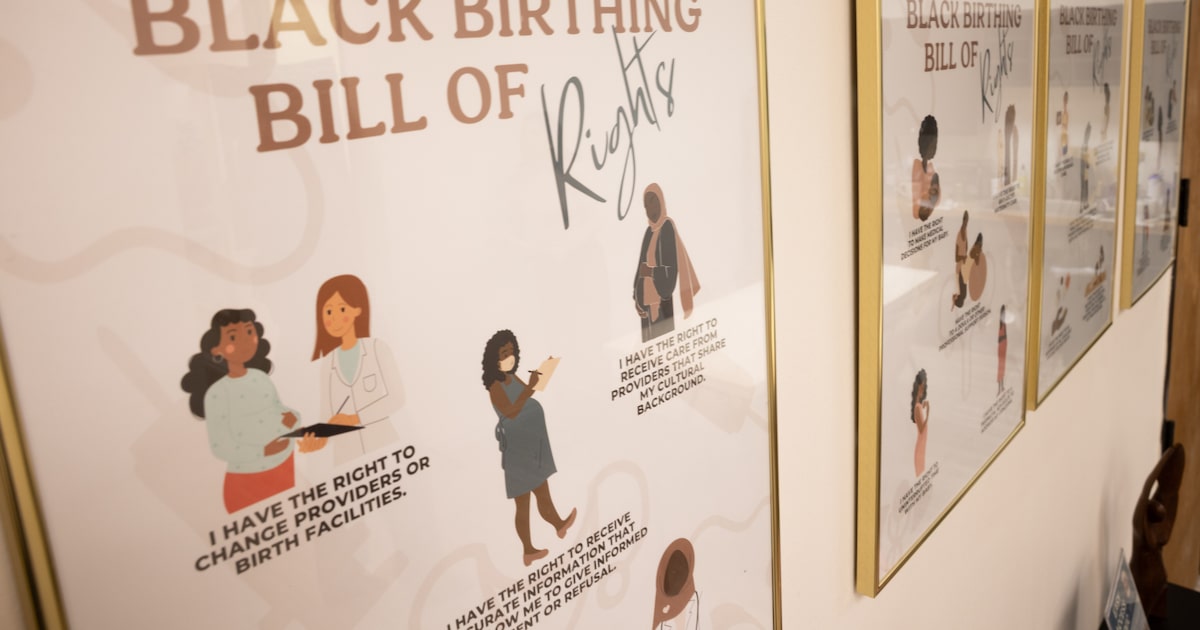Cessilye Smith was shocked when she saw the numbers for maternal and infant mortality rates for Black women. The most jarring part was the disparity between the rates for Black women and those of their white counterparts.
“It messed me up,” Smith said. “It really messed me up.”
Black women, according to the U.S. Centers for Disease Control and Prevention, are three times more likely to die from a pregnancy-related cause when compared to white women. Similarly, according to the CDC, the infant mortality rate for Black women’s babies is more than double the rate for white women’s babies.
The disparities pushed Smith, a Fort Worth native, to open a maternal health clinic in South Dallas in 2020.
The clinic, Abide Women’s Health Services on Martin Luther King Jr. Boulevard, currently focuses on prenatal and postnatal care and lactation support. The staff in July launched a home birthing service, too. By the end of September, there had been three home births through Abide’s service.
Business Briefing
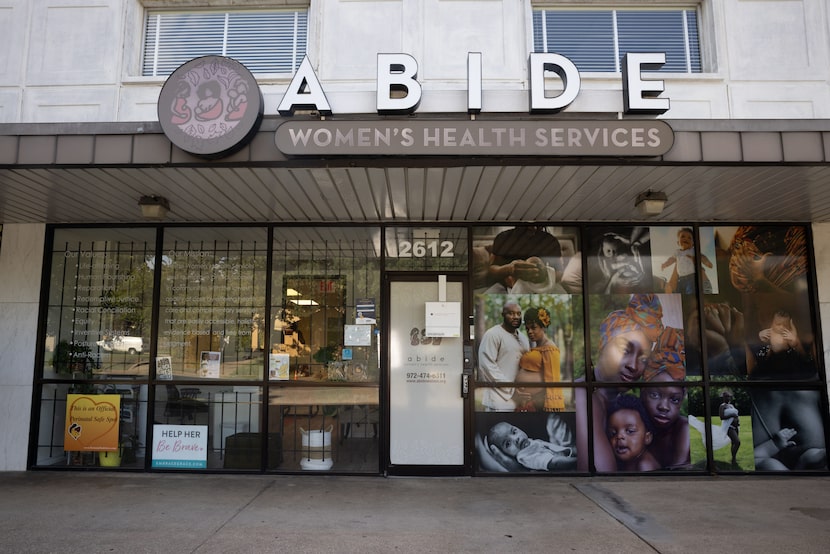
The exterior of Abide Women’s Health Services in Dallas on Tuesday, Sept. 30, 2025. The clinic is planning to build a new birthing center.
Juan Figueroa / Staff Photographer
But Smith and her team have plans to take the clinic a step further. Abide plans to build a full birthing center at the clinic site. Once it is up and running, it will be the only birthing center in the South Dallas neighborhood.
“Residents of South Dallas deserve excellent care. Period,” Smith said. “And they shouldn’t have to drive outside of their community to access it.”
The clinic
The Abide waiting room feels, almost, like a living room.
There’s a massive gray couch, L-shaped and taking up most of the waiting room. Two brown chairs, cushioned but with rocking feet, and two small bean bags complete the sitting area. To the side, there’s a children’s area, set up like a miniature kitchen and dining room.
The homey feeling is intentional, and it’s a feeling that carries into the exam rooms, too. Each exam room is decorated with cozy touches — small wooden bookshelves, for instance — and each one has a love seat, too, so that patients can comfortably bring a family member or friend with them.
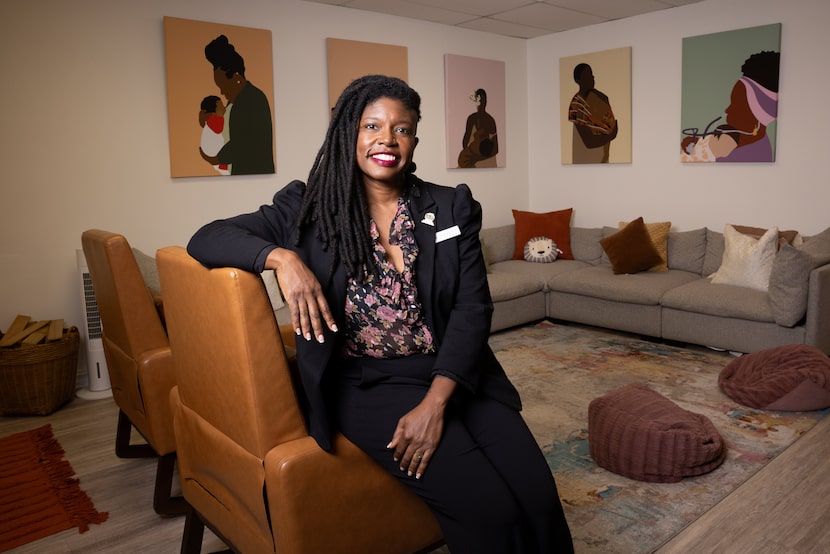
Cessilye R. Smith, founder and CEO of Abide Women’s Health Services, poses for a photo at the clinic in Dallas on Tuesday, Sept. 30, 2025. The clinic is planning to build a new birthing center.
Juan Figueroa / Staff Photographer
Kennasha Jones, a midwife and Abide’s director of client services, said the comfortable setting is intended to put patients at ease.
“Our clinic itself, while still sterile and meeting all the standards in that area, it’s warm and inviting,” she said.
In this space, the clinic staff has provided more than 1,000 clinical services during the first nine months of 2025, according to an Abide report. Those services have been almost entirely prenatal and postnatal care appointments. As of Sept. 31, the clinic’s patients have reported 68 live births this year.
While the clinic is, as Smith describes, “unapologetically” centered on Black women, that focus doesn’t exclude any other demographics. Abide is open to all types of patients in need of prenatal, postnatal or lactation services.
“We believe that when you center the most marginalized — those who are most impacted by health disparities — then it ends up helping everybody,” Smith said.
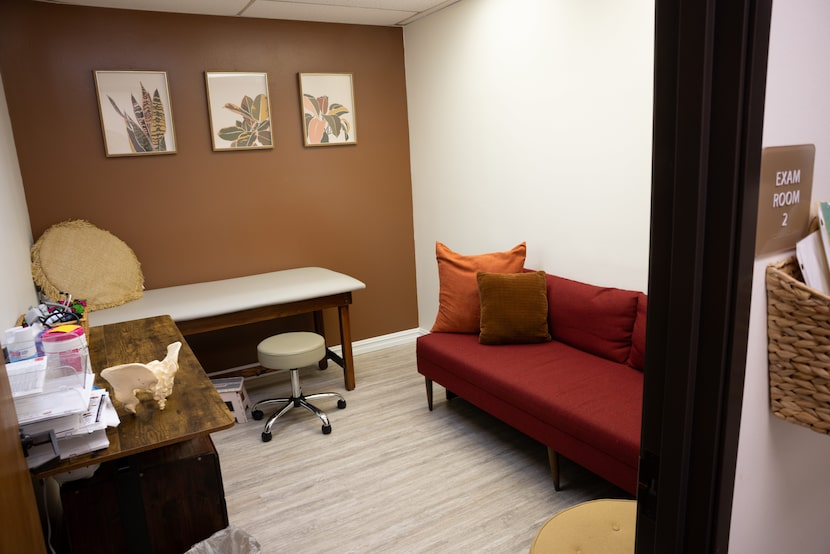
An exam room at Abide Women’s Health Services in Dallas on Tuesday, Sept. 30, 2025. The clinic is planning to build a new birthing center.
Juan Figueroa / Staff Photographer
Smith is proud of the clinic’s numbers and its human touch. Smith lives out-of-state now and, although she returns to Dallas regularly, she said it’s the clinic staff who keep the operation running smoothly.
Asia Jones, a midwife at Abide, said she focuses her work on providing patients with everything they need to have a smooth pregnancy. That includes building trust with patients who are fairly likely to have had negative medical experiences.
Asia Jones thinks that is a big part of the reason that Abide’s patients have better-than-average pregnancy outcomes.
“Honestly I think they’re just listened to a lot more,” she said. “We take their complaints seriously.”
Completing the circle
Abide currently doesn’t provide the full spectrum of pregnancy care to most patients. For delivery itself, the majority of patients go instead to hospital-based labor and delivery units, although each patient is equipped with an Abide-provided “passport” that outlines all their relevant medical information.
This summer, the clinic also launched a home birthing program, for patients who want that type of delivery experience. Smith sees that program as a “bridge” to the planned birthing center.
Once the birthing center opens, patients will be able to deliver their babies at Abide, too. For now, the birthing center is still in the planning phases. Smith said the team aims to have it up and running in 2027.
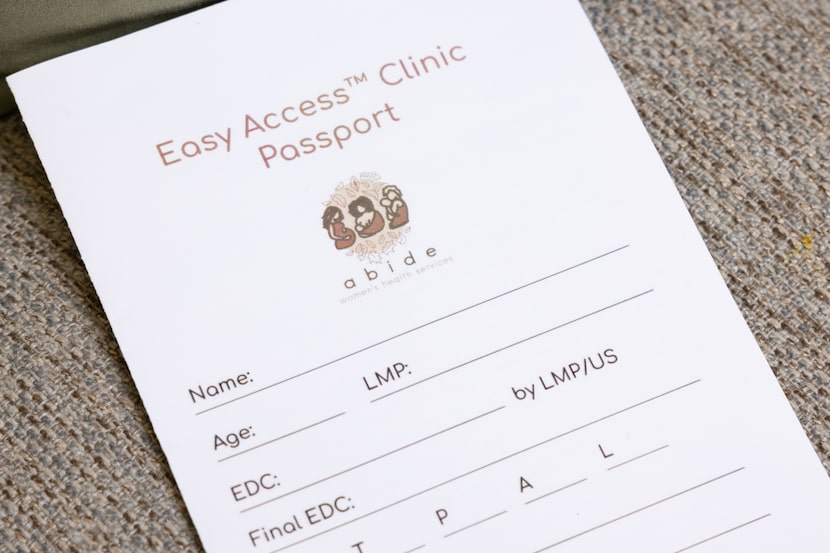
An Easy Access Clinic Passport given to patients at Abide Women’s Health Services in Dallas on Tuesday, Sept. 30, 2025. The clinic is planning to build a new birthing center.
Juan Figueroa / Staff Photographer
Asia Jones said the birthing center will also give an out-of-hospital delivery option to patients who would like to deliver at home, but who don’t have the home environment to do that.
Some patients, for instance, might not have stable housing, or they might live in a shared space without enough privacy for a home birth, or they might not have reliable enough water service. Others simply live too far from a hospital to feel comfortable giving birth at home.
“It would just break a large barrier for this community,” Asia Jones said, “to have a place they know they can go.”
The clinic leadership team had originally planned on building the birthing center in an empty lot adjacent to the clinic. In early October, though, Smith said Abide was shifting plans and would instead build an extension onto the existing clinic building.
Kennasha Jones said the birthing center will “complete the circle” of Abide’s care. She envisions the center as an extension of the existing Abide culture, providing a warm, respectful environment to women who may be sidelined or not taken seriously in other medical settings.
Within this context, Kennasha Jones described Abide and its services as a safe place, a type of oasis.
“It’s beautiful,” she said. “It’s a beautiful thing.”
